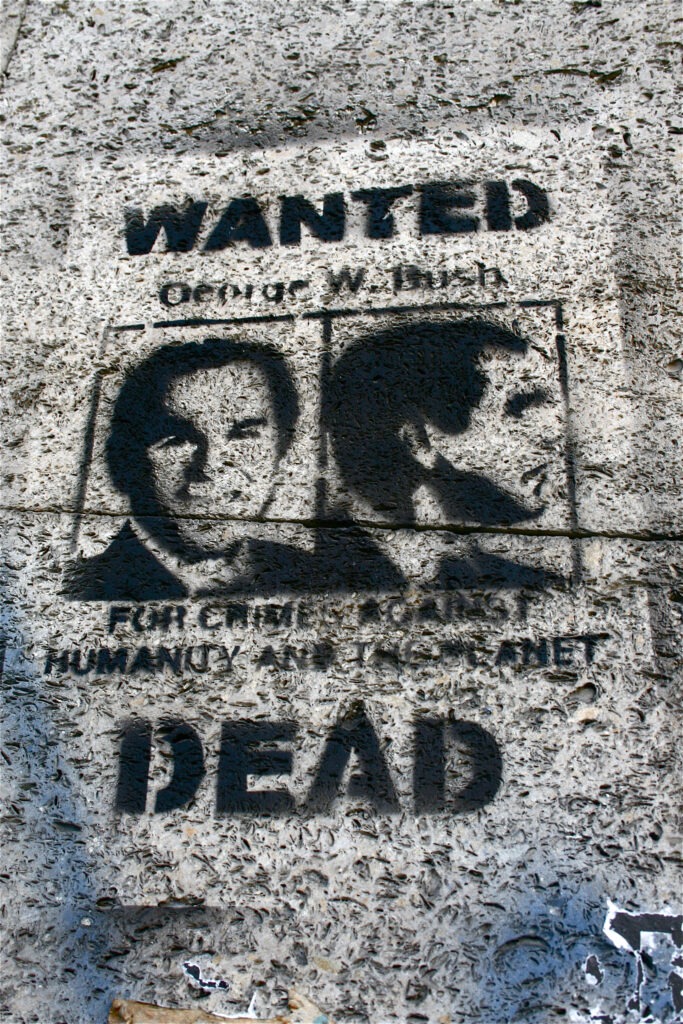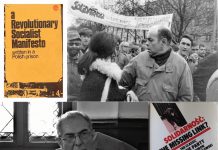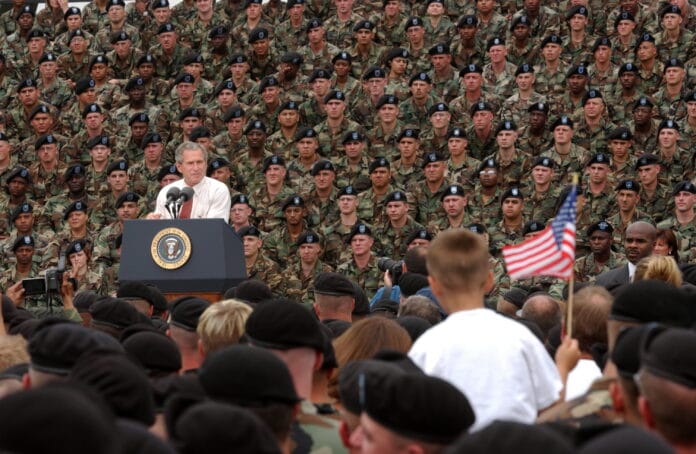
Indhold
Se også på Socialistisk Bibliotek:
- Emnelisten: Irak-krigens ofre – striden om tal
- Tidslinjen: 15. februar 2003, om globale demonstrationer mod Irak krigen.
- Tidslinjen: 18. marts 2003, om maleraktion mod dansk deltagelse i Irak-krigen.
- Tidslinjen: 21. marts 2003, om Folketingets beslutning om dansk deltagelse i Irak krigen.
Forord
Denne emneliste indeholder artikler og sites imod besættelsen af Irak og den bagvedliggende amerikanske udenrigspolitiske strategi.
En række sites og artikler fra emnelisten Nej til krig mod Irak (Tidsskriftcentret.dk, 2002; online på Internet Archive) kan bruges som baggrund for besættelsen.
De sites fra antikrigs-bevægelsen, der dækker besættelsen, er ikke alle angivet igen i denne emneliste.
Se også emnelisten 9/11: Imperialisme og terror efter 11. september
Foreword
This webliography contains articles and web-sites against the occupation of Iraq and the US security strategy behind the war and occupation.
A number af both web-sites and articles from our webliography No to War Against Iraq (Tidsskriftcentret.dk; online at Internet Archive) are relevant as background to the occupation. Those web-sites covering the present developement are not all listed in this webliography.
See also the webliography 9-11: Imperialism and Terror after September 11th.
Jørgen Lund & Bjarne A. Frandsen
Påbegyndt marts 2004. Revideret
marts 2023.
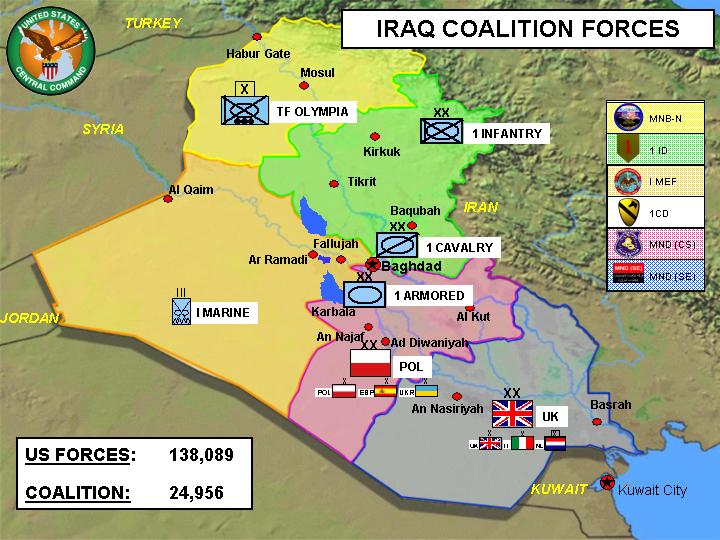
Leksika mv.
Danmarkshistorien.dk
Den danske deltagelse i Irak-krigen, 2003-2007. Af Søren Riis (10. oktober 2012). Med links.
FaktaLink
Irak-krigen. Af Malene Fenger-Grøndahl (13. februar 2009, 27 sider; ajourført december 2016). Betalingssite, som er gratis tilgængelig enten på dit lokale bibliotek eller på din hjemme-pc efter tilmelding på biblioteket.
Leksikon.org
Den Store Danske
Wikipedia, den frie encyklopædi
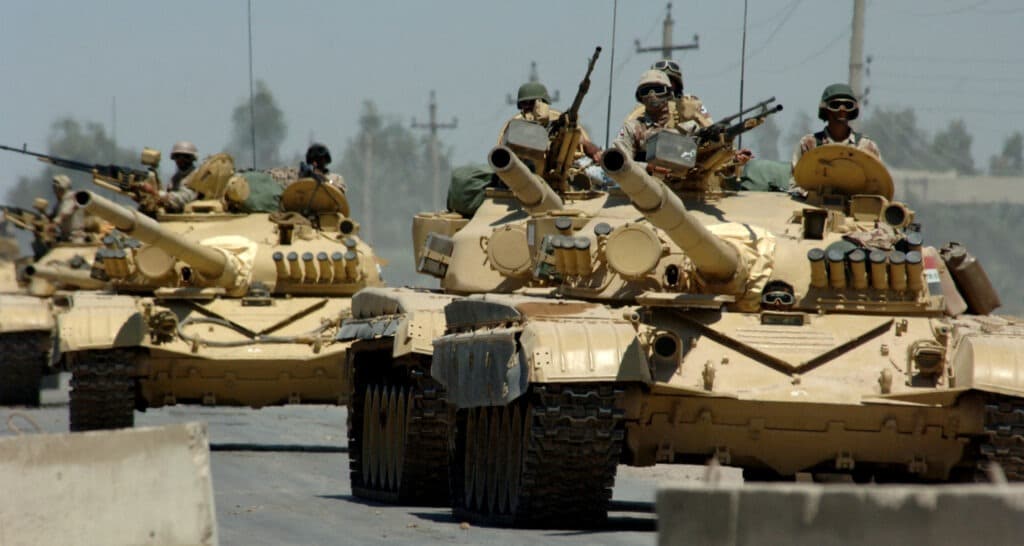
Sites og artikler
Dagbladet Arbejderen
20 år siden invasionen af Irak: Billeder fra en bred og kampklar fredsbevægelse (20. marts 2023)
“Det er i dag 20 år siden, at Danmark, USA og andre vestlige lande invaderede Irak på en løgn om masseødelæggelsesvåben. Gennem billeder mindes Arbejderen en mangfoldig og aktivistisk fredsbevægelse, der ikke var bange for at tage skrappe midler i brug.”
Serie af Omar Dhahir, som oprindeligt bragt som kapitel 7 i bogen Irak – er freden brudt ud?, redigeret af Michael Hertoft (Klim, 2003, s.83-112):
Iraks historie: Fugl Fønix (23. maj 2006)
“Irakerne har erfaringer med besættelse, krig, belejring, sanktioner, sult og død i årtusinder. De bliver gang på gang koloniseret, frataget deres rettigheder og rigdomme, undertrykt, tortureret og knust, men aldrig besejret.”
Iraks historie: briterne, islam og demokratiet (24. maj 2006)
“Anden del af Omar Dhahirs grundige gennemgang af Iraks historie, helt frem til USA`s militære besættelse af landet i 2003.”
Iraks historie: Baath-partiet (26. maj 2006)
“I føljetonen om Iraks historie er vi i dag nået til den periode, hvor Baath-partiet kommer til magten.”
Iraks historie: Saddam Hussein (27. maj 2006)
“I vores føljeton om Iraks historie er vi i dag nået til perioden, hvor Saddam Hussein kommer til magten.”
Sven Tarp: Verdens folk i kamp mod Det Fjerde Rige: krigens årsager og fredens perspektiver (pdf) (Forlaget Arbejderen, 2003, 86 s.; online på Internet Archive)
“De officielle begrundelser for krigen mod Irak er kun til pynt for at narre de troskyldige. I denne pjece analyseres de virkelige årsager til krigen ved hjælp af omfattende dokumentation fra USA’s officielle kilder.”
Det danske Fredsakademi
Litteratur om Irakkrigen / The War in Iraq: A bibliography. Af Holger Terp (2004- )
Demos Nyhedsbrev
Tema: USAs strategier for opretholdelsen af verdensherredømmet (pdf) (nr. 88, forår 2006, 36 s.; online på Internet Archive)
“Demos har de sidste tre år afholdt en række møder med fokus på krigen i Irak. Det sidste møde (september 2005), omhandlede bl.a. USAs forsøg på at opretholde verdensherredømmet, dets undertrykkelsesmetoder historisk og aktuelt samt det økonomiske kaos i Irak. Vi har samlet nogle af indlæggene fra mødet, som vi bringer her i Nyhedsbrevet.”
Tema: Den nye amerikanske verdensorden (pdf) (nr. 77, vinter 2003, 20 s.; online på Internet Archive)
“Den 25. oktober afholdt Foreningen Demos et debatmøde om den nye verdensorden med fokus på USA som førende supermagt … Vi vil i dette nummer af Nyhedsbrevet bringe de indlæg, som blev holdt på mødet.”
Ekstra Bladet
I 2003/2004 udgav Ekstra Bladet Bo Elkjærs Løgnen om krigen – krigen om løgnen (ny udgave 2008: Kære statsminister: løgnen om Irakkrigen, 206 sider). Se foreløbig version online (Cryptome.org) + 2. udgave online på engelsk:
The lies of the war – the war of the lies (pdf) (Fredsakademiet, Second edition, February 2004, 89 p.)
Gå på opdagelse i de 391.832 rapporter (23. oktober 2010)
“Ekstra Bladets gennemgang af WikiLeaks nye lækage viser, at Irak-krigen er langt mere blodig end det hidtil har været dokumenteret.”
Folketinget
2002-03 – B 118 (oversigt): Forslag til folketingsbeslutning om dansk militær deltagelse i en multinational indsats i Irak (18.-20. marts 2003)
2002-03 – B 165 (oversigt): Forslag til folketingsbeslutning om dansk militær deltagelse i en multinational sikringsstyrke i Irak (6.-15. maj 2003)
Se også:
Pressemøde den 21. marts vedr. Irak: Statsministerens indledende bemærkninger (Statsministeriet; online på Internet Archive)
Forsvarets Efterretningstjeneste
Situations- og trusselsvurderinger for Irak (9. maj 2007; online på Internet Archive)
“Fire år efter Saddam Husseins fald fortsætter bestræbelserne på at opbygge en ny irakisk stat under ledelse af den demokratisk valgte regering og med støtte fra koalitionen. Situationen har udviklet sig til borgerkrig, hvor irakerne kæmper om territorier, ressourcer og politisk magt, og landet er præget af opløsning og udbredt kaos.”
Grundlovskomiteen af 2003 vedr. Irak-krigen
“Komiteen udgør det organisatoriske bagland bag 26 personer, der i 2005 anlagde sag mod statsminister Anders Fogh Rasmussen med påstand om grundlovsbrud i forbindelse med Danmarks deltagelse i Irak-krigen.” Grundlovskomiteen blev opløst marts 2010, men kan ses online på Internet Archive.
Se også:
Den nye krigsdiskurs – grundlovsbrud, Akademia og Højesteret (pdf). Af Nils Bredsdorff og Jørgen Vogelius (Skriftserie fra Roskilde Universitetsbibliotek, nr.53, maj 2010, 35 s.). Tillæg med Højesterets dom af 17. marts 2010.
Information
Emne: Irak-kommissionen (2014- )
War Logs: Data fra de lækkede krigsrapporter fra Wikileaks.org (oktober 2010)
“Information har haft forhånds-adgang til 391.832 lækkede dokumenter fra Irak-krigen. Vi bringer en række afsløringer med særlig fokus på Danmarks rolle, baseret på en detaljeret gennemtrawling af de mange tusinde dokumenter.”
Se også: The War Logs: Sådan har vi gjort (22. oktober 2010)
Charlotte Aagaard: Danske jurister: Irak-krigen var ulovlig (28. januar 2010)
“En lang række topjurister mener, at Danmarks deltagelse i Irak-krigen var ulovlig og opfordrer regeringen til at iværksætte en uvildig Irak-undersøgelse. Mindst 83 folketingsmedlemmer bakker op.” I bunden af artiklen: Fakta: De vigtigste afsløringer.
Jørgen Steen Nielsen: Ved vejs ende (13. august 2007)
“Efter 1.600 dages deltagelse i besættelsen af Irak er den landbaserede danske militærmission afsluttet. Tilbage står ikke blot et land i blodigt kaos, men også et dystert og belastende katalog af fortielser, forfalskninger fejlvurderinger, folkeretsbrud og forfærdende naivitet. Der er et ansvar, der nu må placeres og et stykke nutidshistorie, der skal blotlægges.”
Preben Wilhjelm: Irakkrigen og den fremtidige verdensorden (20. marts 2004)
“De falske begrundelser [for Irak-krigen] … er selvsagt også utroligt vigtige, men der er også andre aspekter, som er fuldt så væsentlige: … Hvor stor en risiko var man parat til at løbe, frem for at lade våbeninspektørerne gøre arbejdet færdigt? Hvad er de folkeretlige konsekvenser af Bush-doktrinen og af omgåelsen af Sikkerhedsrådet?” Essayet er også udgivet i udvidet udgave som pjece (Fredsfonden, marts 2004, 54 sider; online på Internet Archive).
Preben Wilhjelm: ‘En samling forbrydere’. Interview ved Jørgen Steen Nielsen (28. januar 2005)
“Havde den internationale retsorden virket, skulle Anders Fogh og Per Stig Møller være udleveret til retsforfølgelse.”
Charlotte Aagaard: Jurister angriber krigsgrundlaget (18. oktober 2003)
“Danmark gik i krig på et ulovligt grundlag. Det konkluderer et nyt speciale fra Københavns Universitet. Juraprofessor Ole Espersen bakker konklusionen op.”
Se også:
Thomas Dyhrs speciale om regeringens juridiske grundlag: Just war in Iraq 2003 (pdf) (9. oktober 2003, 79 s.)
“Some legal problems jus ad bellum in international law derived from the US Government and coalition forces intervention in Iraq in March 2003”. ‘Just War in Iraq 2003’ is submitted on the 9th. of October 2003 for the Master of Law degree at the University of Copenhagen. Se også: Det juridiske grundlag for iværksættelse af militære forholdsregler mod Irak (Udenrigsministeriet, 18. marts 2003)]
Internationale Socialister (ISU)
Tema: Irak-krig 2002-?
Links til en større række artikler på dansk og engelsk (kronologisk).
Komiteen for et Frit Irak (KFI)
Stiftet 13. september 2003 for “at støtte det irakiske folks retfærdige kamp for et frit og uafhængigt Irak.”
Site med nyheder, analyse og dokumentation om krigen i Irak og Danmark som besættelsesmagt. Online på Internet Archive.
Krigsudredningen
Hvorfor gik Danmark i krig? – uvildig udredning af baggrunden for Danmarks militære engagement i Kosovo, Afghanistan og Irak. Bind 1-4. Af Rasmus Mariager og Anders Wivel (red.) (Krigsudredningen, 5. februar 2019, 396 + 596 + 672 + 367 sider; online på Krigsudredningen.ku.dk)
“Den 25. maj 2016 indgik et flertal i Folketinget en aftale om at iværksætte en uvildig udredning af det historiske forløb i forbindelse med Danmarks militære engagement i Kosovo, Irak og Afghanistan med henblik på at kortlægge baggrunden for de politiske beslutninger om dansk deltagelse og sikre en retvisende beskrivelse og læring for eftertiden.” Se også:
Bo Elkjær: Krigsudredning giver svar – men efterlader også huller i vores viden om Danmarks krig i Irak (Information.dk, 6. februar 2019).
Preben Wilhjelm: Vil S og R undgå en ny Irak-kommission? (Solidaritet.dk, 18. marts 2019). “… om nødvendigheden af en ny Irak-kommission, og hvorfor man kan frygte, at en sådan ikke bliver nedsat – selv hvis regeringsmagten skifter hænder.”
Stig Hjarvard, Nete Nørgaard Kristensen og Mark Ørsten: Mediernes dækning af invationen i Irak 2003 (Modinet working paper no. 13, 2004, 114 s.; online på Internet Archive)
“Den første større videnskabelige undersøgelse af danske mediers dækning af krigen i Irak, som dokumenterer: At krigen i høj grad blev dækket på kildernes præmisser – med fokus på de militære aspekter. .. At medierne skiftede fokus, da krigen startede. Begrundelserne for og modstanden mod krigen gled i baggrunden.”
Relaterede links til mere om Irak-rapporten, Pressemeddelelse (pdf), Medieomtale af rapporten mv.
Se også Stig Hjarvad: Mediernes Irak-krig (Ekko, april 2005)
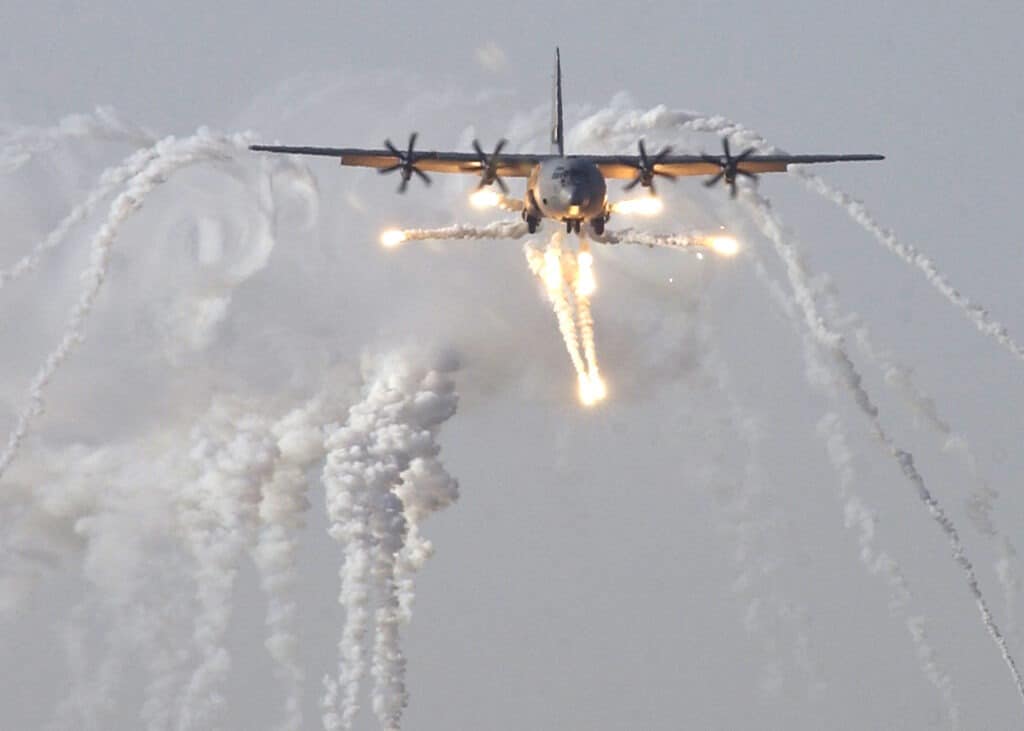
Modkraft.dk/Kontradoxa
Martin Lindblom: Søren Pind ville ‘afvæbne Saddam’ (2. oktober 2008)
“Søren Pind raser over Jens Rohdes udtalelser om, at baggrunden for Irak-krigen i realiteten handlede om Saddam Husseins påståede masseødelæggelsesvåben. Men Pind selv var en af dem, der krævede Saddam ‘afvæbnet’.”
Med en række citater fra danske og udenlandske politikere om Saddam Husseins ‘masseødelæggelsesvåben’.
Hans Erik Avlund Frandsen: Det nødvendige demokrati (24. marts 2008)
“Jørgen Bonde Jensen gør op med Thøger Seidenfaden, regeringen og USAs neokonservative.” Anmelderartikel af Jørgen Bonde Jensens bog: Politiken og krigspolitikken – et læserbrev (Forlaget Babette, 2007, 308 s.)
Kenneth Haar: Fjendens fjende og antikrigsbevægelsen (25. marts 2005)
“Bevægelsen mod krigen i Irak må diskutere de regulære problemer i Irak. Ellers kan den ikke skabe et reelt pres for tilbagetrækning af tropperne.”
Kennet Haar: Irak: En parodi på demokrati (25. oktober 2004)
“Det suveræne Iraks’ vergangsregering og nationalforsamling er blevet miskrediteret på rekordtid. Den væbnede modstand er taget til, og USA’s Irak-projekt er i krise. Alligevel står USA’s nederlag næppe lige for døren.”
Nej til Krig
“Nej til krig er et landsdækkende netværk, bestående af lokale fredsgrupper, politiske partier, organisationer og bevægelser.”
Sitet har en større samling links (Nyhedsbureauer, Alternative nyheder, Modstanden, Dræbte, sårede, omkostninger m.v.). Online på Internet Archive.
Netavisen Pio
Lykketoft om Irak-invasionen for 20 år siden: En kæmpe fejltagelse. Af Jan Kjærgaard (22. marts 2023)
“Læren af Irak-invasionen er, at man ikke kan eksportere demokrati med militær magt, mener den tidligere S-udenrigsminister.”
Politiken
Nils Bredsdorff: Der er masser at komme efter (kronik 30. december 2009)
“En britisk undersøgelse af Irakkrigen belaster Tony Blair. Danmark har brug for tilsvarende afdækning.”
Revolution
Alan Woods: Irak: fem år efter (1. april 2008)
“I løbet af de sidste fem år er terrorismen taget til ikke blot i Irak, men i hele den omgivende region. Hadet imod USA er blevet enormt forøget af besættelsesmagternes voldelige gerninger … Dermed har George W. Bush virket som den bedste rekrutteringsofficer for al-Qaeda.”
Felix Zorba og Roberto Sarti: Opstande og forræderi: en kort gennemgang af den irakiske venstrefløjs historie (26. maj 2003)
“Hovedformålet med denne artikel er at afsløre mediernes løgne og prøve at forklare den irakiske venstrefløjs historie, så de bedste aktivister kan lære ikke at gentage fortidens fejltagelser.”
Roskilde Universitetscenter
Den nye krigsdiskurs – grundlovsbrud, Akademia og Højesteret (pdf). Af Nils Bredsdorff og Jørgen Vogelius (Skriftserie fra Roskilde Universitetsbibliotek, nr.53, maj 2010, 35 s.).
“Det er ikke tit, man opdager det så tidligt. Men denne gang er vi heldige at se de første spæde skridt mod en ny udenrigspolitisk diskurs, krigsdiskursen. Danmark har nu været i krig i 7 år, og det har sat sig spor i sproget, senest hørt hos den nye udenrigsminister, der taler om retten til at gå i krig uden om FN.” Tillæg med Højesterets dom af 17. marts 2010.
Boris Gullev og Simon Vöge Hansen: It’s hammer time ok!: TV-avisen og Rapports dækning af Irakkrigen (pdf) (Speciale Rosilde Universitets Center, Institut for Journalistik, november 2004, 135 s.; online på Internet Archive).
Undersøgelse af DR’s TV-avisen og svenske SVT1’s Rapport 15.-22. marts 2003.
Slagmark
Rosanna Farbøl: Irakkrigen og den historiske legitimering (pdf) (nr.60, 2011, s.68-80)
“Det er denne artikels påstand, at Fogh Rasmussen skrev Irakkrigen ind i en bestemt udlægning og tolkning af Danmarks historie, og at han via denne tolkning legitimerede krigsdeltagelsen.”
Socialistisk Information
Peter Kragelund: Hvem skal nu bestemme? (nr.176, maj 2003; online på Internet Archive)
“USA har flere forslag til kandidater – i modsætning til hinanden og til Iraks befolkning!”
Martin Hammer: Genopbygning, tyveri og privatisering (nr.176, maj 2003; online på Internet Archive)
“Den amerikanske besættelsesmagt i Irak har samme mål som WTO. Strategien ‘del og hersk’ er blevet afløst af ‘bomb og sælg’.”
Solidaritet
David Bacon: Saddams arbejdslove lever i bedste velgående (nr.1, marts 2004, s.12-16; online på Internet Archive)
“De fleste irakiske arbejdere håbede på, at Saddams fald ville medføre en ny frihed, der kunne sikre dem generobringen af tabte rettigheder. Blandt de vigtigste retten til uafhængige fagforeningen.”
Stop Terrorkrigen: Krigsmodstand på Nettet
Tema: Bush-doktrinen: Manifest for et verdensdiktatur
Oplæg, artikler og dokumenter på engelsk og dansk om National Security Strategy (2002) og Bushs State of the Union (2002). Online på Internet Archive.
Bush-doktrinen: Citater på dansk fra National Security Strategy
Videnskab.dk
Video
Se dokumentaren ’Krigskampagnen’ om Foghs beslutning om at gå i krig mod Irak. Af Bo Elkjær (Information.dk, 5. marts 2019)
“‘Krigskampagnen’ viser, hvordan daværende statsminister Anders Fogh Rasmussen og VK-regeringen strammede oplysninger om Irakkrigen og dermed vildledte Folketinget og den danske befolkning.” (Bush, Blair og Fogh – Krigskampagnen. Instruktion Boris Benjamin Bertram, Magic Hour Films, 2013, 60 min.).
Foghs glemte krigstale (YouTube, 29/09/2001, 8 min.)
“21. marts 2003 trådte Danmark ind i Irakkrigen. Femten minutter efter det var besluttet i Folketinget, gik Fogh på talerstolen i Statsministeriet for at fortælle danskerne hvorfor vi skulle i krig … Og denne tale indeholder alle de masseødelæggelsesvåben han siden har benægtet var en del af begrundelsen for vores deltagelse.” Se også Jakob v. H. Holtermann: Foghs glemte tale (pdf) (Weekendavisen, 28. september 2007; online på Internet Archive)
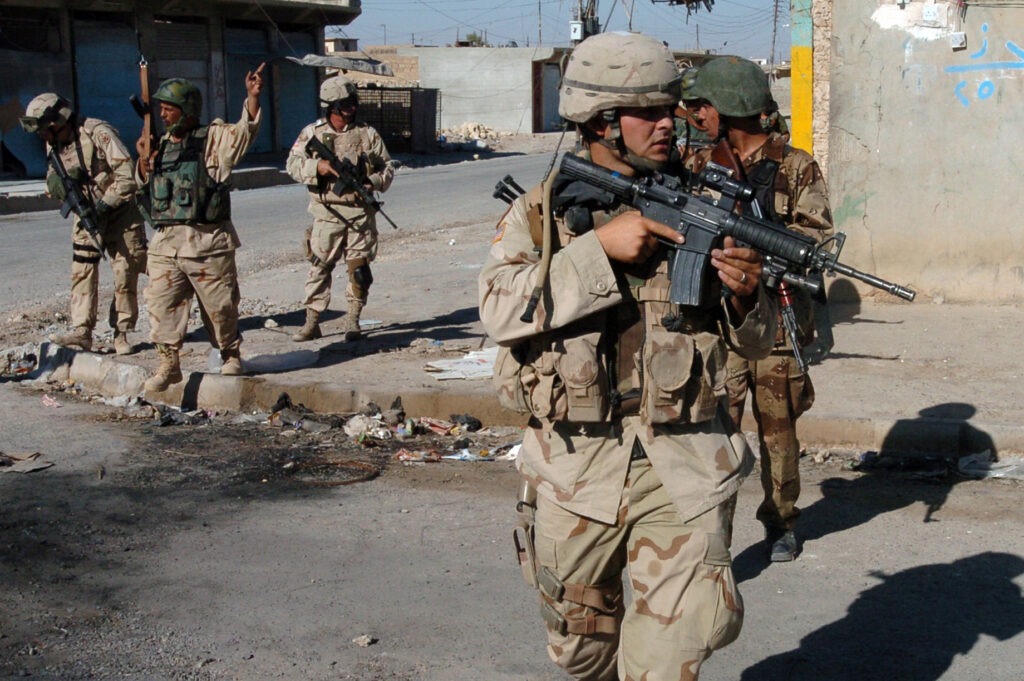
Articles
Wikipedia, the free encyclopedia
Against the Current
Michael Schwartz: Contradictions of the Iraqi resistance: Guerilla war vs. terrorism (Issue 120, January-February 2006)
“The contradictions are irreconcilable. In the end, either the jihadists will prevail, thus reducing the guerrilla movement to irrelevance, or the guerrillas will prevail by eliminating the jihadists as a force within the Iraqi resistance.”
Michael Schwartz: Iraq: Guerrilla war in Sadr City (Issue 114, January-February 2005)
“The al-Mahdi army – the military arm of the Sadrist Movement that has dominated the area’s politics for the past quarter century – has become the most important of all the insurgent groups, and a close look how it operates in its home base yields some startling conclusions about the trajectory of the struggle for control of Iraq.”
The Atlantic
Torie Rose Deghett: The war photo no one would publish (August 8, 2014)
“When Kenneth Jarecke photographed an Iraqi man burned alive, he thought it would change the way Americans saw the Gulf War. But the media wouldn’t run the picture.”
Catalyst Review
Nida Alahmad: America broke up Iraq into sectarian pieces (July 31, 2023). Review of Ghaith Abdul-Ahad’s book (Knopf, 2023, 320 p.). “A Stanger in Our Own City is a powerful account of America’s invasion and occupation of Iraq and its catastrophic effects on the Iraqi people. Does the Tishreen uprising mark the beginning of the end of Iraq’s sectarian political structure?”
Costs of War Project (Brown University)
Neta C. Crawford: Blood and treasure: United States budgetary costs and human costs of 20 years of war in Irag and Syria, 2003-2023 (March 15, 2023, 27 p.). “This paper examines the total costs of the war in Iraq and Syria, which are expected to exceed half a million human lives and $2.89 trillion.”
Counterfire
Alistair Cartwright: Fuel on the Fire: Oil and Politics in Occupied Iraq (15 June 2011). Review of Greg Muttitt’s book (The Bodley Head, 2011)
“Fuel on the Fire is a history of the struggle for Iraq’s oil which began with the 2003 war and where despite overwhelming military and economic might, the US has failed to impose its designs.”
Focus on the Global South
Dossier: Silent war: the US’ ideological and economic occupation of Iraq (pdf) (January 2005, 60 p.)
“This selection of articles focuses on the US’ ideological and economic occupation of Iraq: a form of occupation that may well outlast its military presence. Using its own agencies such as USAID and foundations such as the National Endowment for Democracy, or by sub-contracting to private companies like the Research Triangle Institute, the US has systematically set about promoting its own model of liberal democracy.”
Global Policy Forum
War and occupation in Iraq (June 2007, 117 p.)
“This report considers many aspects of the conflict, with special emphasis on the US Coalition’s responsibilities under international law. It also considers political and economic issues in Iraq and argues for urgent change, including a speedy withdrawal of Coalition forces.”
In Defence of Marxism
Jonathan Hinkley: 20 years since the invasion of Iraq: the brutal legacy of imperialism (20 March 2023)
“The US-led invasion of Iraq began 20 years ago. Since then, the country has been torn apart by war, sectarianism, and fundamentalism. To end the horror and barbarism of imperialism, we must fight for revolution and overthrow capitalism.”
Benjamin Curry: Communism and the Iraqi Revolution. Part 1-3 (9-19 July 2016)
“This article goes to the roots of the revolutionary history of the Iraqi people which is far from the barbarism which it is often labelled with by the bourgeois media today.”
Roberto Sarti: The Iraqi communist tradition is still alive (June 23, 2003)
“As the US discusses the future of Iraq with its friends and allies from all over the world, the opposition movement to US occupation is growing and within this the old Communist traditions are once again beginning to take root. It is not just Islamic fundamentalism that is growing in post-war Iraq.”
Felix Zorba and Roberto Sarti: Uprising and betrayals: a brief history of the left in Iraq (April 29, 2003)
“The main purpose of this article is to expose the lies of the media and to understand the history of the Iraqi Left, in order to help the best activists not to repeat the mistakes of the past.”
The Institute for Policy Studies
Phyllis Bennis and Erik Leaver: The Iraq quagmire: The mounting costs of war and the case for bringing home the troops (August 31, 2005, 98 p.)
“This report is the most comprehensive accounting of the mounting costs and consequences of the Iraq War on the United States, Iraq, and the world. Among its major findings are stark figures that quantify the continuing of costs since the Iraqi elections, a period that the Bush administration claimed would be characterized by a reduction in the human and economic costs.”
International Socialism
Phil Marfleet: Iraq: what happened next… (Issue 161, Winter 2019, p.83-105)
“Rather than a stable base for US interests, Iraq is highly volatile—its politicians the focus of mass hostility, its youth insistent on societal change.”
Anne Alexander: The tragedy of Iraq’s Communists (Issue 120, Autumn 2008, p.188-191). Review of The Rise and Fall of the Communist Party of Iraq, by Tareq Ismael (Cambridge University Press, 2007)
‘Iraq is not a communal war’ (Issue 114, Spring 2007, p.15-26)
“Sami Ramadani, an Iraqi exile based in Britain, spoke to International Socialism about the situation in the country after four years of occupation.”
Resistance and sectarianism in Iraq (Issue 109, Winter 2006, p.57-68)
“If you are to believe the media, Iraq is on the verge of a sectarian civil war. Exiled activists Sami Ramadani and Haifa Zangana challenge the cliches, and talk about what is happening on the ground.”
Anne Alexander and Simon Assaf: The elections and the resistance in Iraq (Issue 106, Spring 2005, p.12-23)
“The positive gloss on the elections hides deepening problems for the occupation. The resistance has not lost its mass support.”
Anne Alexander and Simon Assaf: Iraq: The rise of the resistance (Issue 105, Winter 2005, p.3-41)
“‘Iraq – the new Vietnam’ is now a cliché. But the lies and misinformation about the resistance abound, even on the left. Anne Alexander and Simon Assaf challenge these, and provide the fullest account of its rise to have appeared anywhere yet. They coclude that it is a movement for national liberation that deserves the support of anti-imperialists everwhere.”
Anne Alexander: Daring for victory: Iraq in revolution 1946-1959 (Issue 99, Summer 2003, p.83-102)
“The Iraqi people are portrayed on our TV screens as victims – first of Saddam Hussein, then of US and UK bombs. Anne Alexander reveals the mass movements that shook Iraq in the 1940s and the 1950s, when millions of workers and peasants rose up against imperialism.”
Alex Callinicos: The grand strategy of the American empire (Issue 97, Winter 2002, p.3-38)
“.. what are the strategic and economic motives that are driving this new policy of the Bush administration? And does the US have the unparalleled economic strength that can support such a renewed imperial drive? These are issues that it its critical for the anti-war movement to understand.”
International Socialist Review
Michael Schwartz: The state of struggle in Iraq (Issue 78, July-August 2011)
“After six years of military carnage unmatched by any of the (many) violent crises in the last two decades, the situation in Iraq has ‘settled’ into a multiplex struggle over its role in the world system, its role in the Middle East, and its role answering the needs of its citizens.”
Beyond the surge in Iraq: Where is the U.S. occupation headed? (Issue 62, November–December 2008)
“Ashley Smith looks behind the hype about success in Iraq.”
Ashley Smith: Anatomy of an imperial war crime: The invasion and occupation of Iraq (Issue 55, November–December 2007)
“This failed war was not simply cooked up by Bush and a cabal of crazy right-wingers, though they played a role in ensuring its failure. It was the logical outcome of U.S. policy in the Middle East, and it had the backing of the American establishment. The establishment, however, realizes along with the rest of the population that Bush has failed, and is concerned chiefly with finding a way out of the quagmire that does not undermine U.S. interests in the Middle East or its international standing as the dominant world power.”
A conversation with David Bacon: Iraqi workers have seized this moment (Issue 33, January–February 2004)
“David Bacon – a labor journalist and photographer based in Southern California – traveled to Iraq in October as part of a U.S. Labor Against the War delegation. He found a war-torn country with mass unemployment and little evidence of reconstruction. He also found a newly-emerging movement of workers and the unemployed that is increasingly at odds with the U.S. occupying powers.”
Nicole Colson: Occupation and resistance in Iraq (Issue 31, September–October 2003)
“The rise of the resistance to the U.S. occupation should be welcomed, for two reasons. One, because the Iraqis have a fundamental right to self-determination, and two, because increasing resistance helps to thwart Washington’s plans in Iraq and elsewhere.”
Rania Masri: The corporate invasion of Iraq (Issue 30, July–August 2003)
“There are numerous ways to examine this occupation of Iraq: through the lens of military occupation and drive for empire; the racism that allows the dehumanization of people; or the driving force of increased corporate power. All are accurate. The first two angles have been discussed thoroughly; corporate power–and its influences on foreign and domestic people–needs to be brought further into the discussion of Iraq.”
Paul D’Amato: The occupation of Iraq (Issue 29, May-June 2003)
“The U.S. will likely find some way to establish some semblance of order in Iraq at least temporarily–but it has already encountered strong resistance, and that resistance will grow, spelling disaster for the occupation in the long run. The U.S. believes that there are no political forces in the Middle East that can successfully challenge its imperial agenda in the region. And in the short term, they may be right. Maybe. And only in the short term.”
International Viewpoint
The Iraqi Debacle (Issue 385, January 2007). Gilbert Achcar interviewed by Stephen R. Shalom and Chris Spannos.
“The great majority of Iraqis see that the very presence of the (US and other) foreign troops is fueling the deterioration of the situation: it has fueled the growth of the insurgency for a long time, and now it is fueling the civil war itself.”
See also: Index Iraq
Iraq Study Group Report
James A. Baker, III, and Lee H. Hamilton, Co-Chairs (December 6, 2006, 160 p.). See Wikipedia.org
Debate:
Martin Thomas: The US ruling-class debate on Iraq (Workers Liberty, 1 January, 2007)
“The Baker report is valuable mainly as an index of the bewilderment and impasse in US ruling-class circles.”
Michael Schwartz: Why withdrawal is unmentionable (AlterNet, December 14, 2006)
“Pulling out of Iraq would be an imperially momentous decision. It would mean the abandonment of more than two decades of American foreign policy in the Middle East.”
John Bellamy Foster: The Iraq Study Group Report: Has the Empire really failed? (MR Online, December 12, 2006)
“From the standpoint of powerful vested interests in the United States, the Iraq War may still be seen as worth the costs. Oil after all is more valuable than blood, especially the blood of others (including the innocent).”
Michael Schwartz: The myth of more: The two crucial fallacies of Bush Administration policy in Iraq (TomDispatch, December 6, 2006)
“In fact, the American invasion and occupation of Iraq have visited a series of plagues on both the Iraqi and the American people – and on the world as a whole; and these plagues will have no hope of amelioration until the U.S. military genuinely withdraws from that country or is expelled.”
Jacobin
The Iraq War remade the world in its grisly image (March 20, 2024)
Daniel Denvir interviews Brendan James and Noah Kulwin: “The 2003 invasion of Iraq has been swept to the margins of collective memory. We must refuse to forget it — and seek to understand what led to it, who benefited, who suffered, and how it transformed the world.”
Stephen Semler: The cataclysmic Iraq War in 6 charts (April 8, 2023)
“The US invaded Iraq 20 years ago this spring. From killing hundreds of thousands of civilians to redistributing wealth to the rich and powerful, it was an unmitigated disaster. These charts show how.”
The Iraq War was one of history’s greatest atrocities (March 20, 2023)
Seth Ackerman interview Glen Rangwala: “The US invasion of Iraq was a crime, a calculated act of aggression that left immense destruction in its wake with almost no redeeming benefits to anyone — including its villainous architects.”
Ben Burgis: The invasion of Iraq wasn’t a “mistake”. It was a crime (March 20, 2023)
“Today is the 20th anniversary of the invasion of Iraq. We should never forget and never forgive the architects of that evil war.”
The US invasion was a catastrophe for the people of Iraq (March 19, 2023)
Daniel Finn interviews Dina Rizk Khoury: “The US promised to bring freedom to Iraqis, but its eight-year occupation resulted in death and destruction on a horrifying scale. It left behind a corrupt, sectarian political order that has responded to popular protests with brutal repression.
Branko Marcetic: Twenty years ago, the Iraq War changed everything — and taught elites nothing (March 19, 2023)
“The ripple effects of the disastrous Iraq invasion still course through the Middle East and domestic US politics decades later. Yet there’s little evidence those in power have learned anything from it.”
Michael Schwartz and Richard Lachmann: 9/11 was a disaster for the people of Iraq (September 11, 2021)
“The Bush administration was already planning to invade Iraq before 9/11, but the attacks supplied the necessary pretext. The catastrophic war that followed turned Iraq into an ungovernable wasteland.”
Janan Aljabiri: Everything you need to know about the protests in Iraq (December 6, 2019)
“The protest movement convulsing Iraq is a heroic revolt powered by unemployed, precarious, and informal workers. Their aim is to overturn the entire political system, which has produced nothing but violence and poverty for the vast majority of Iraqis.”
Joseph Stiglitz
Joseph E. Stiglitz and Linda Bilmes: The economic costs of the Iraq war: An appraisal three years after the beginning of the conflict (National Bureau of Economic Research/Working Paper, February 2006, 38 p.; online at Internet Arvhive)
“In this paper, we attempt to provide a range of estimates for what those costs have been, and are likely to be. Even taking a conservative approach, we have been surprised at how large they are. We can state, with some degree of confidence, that they exceed a trillion dollars.”
Joseph Stiglitz and Linda Bilmes: Cost of occupation in Iraq: $3 trillion estimate was too low (AlterNet, April 8, 2008; online at Internet Archive)
“Notwithstanding Bush’s response, our original estimate of the cost of the Iraq war was too conservative: in reality, it will be much higher.”
Joseph Stiglitz and Linda Bilmes: The three trillion dollar war (Alternet, February 25, 2008; online at Internet Archive).
“The cost of the Iraq and Afghanistan conflicts have grown to staggering proportions.”
The three trillion dollar war: Nobel Laureate Joseph Stiglitz and Harvard Economist Linda Bilmes on the true cost of the US invasion and occupation of Iraq (Democracy Now! February 29, 2008)
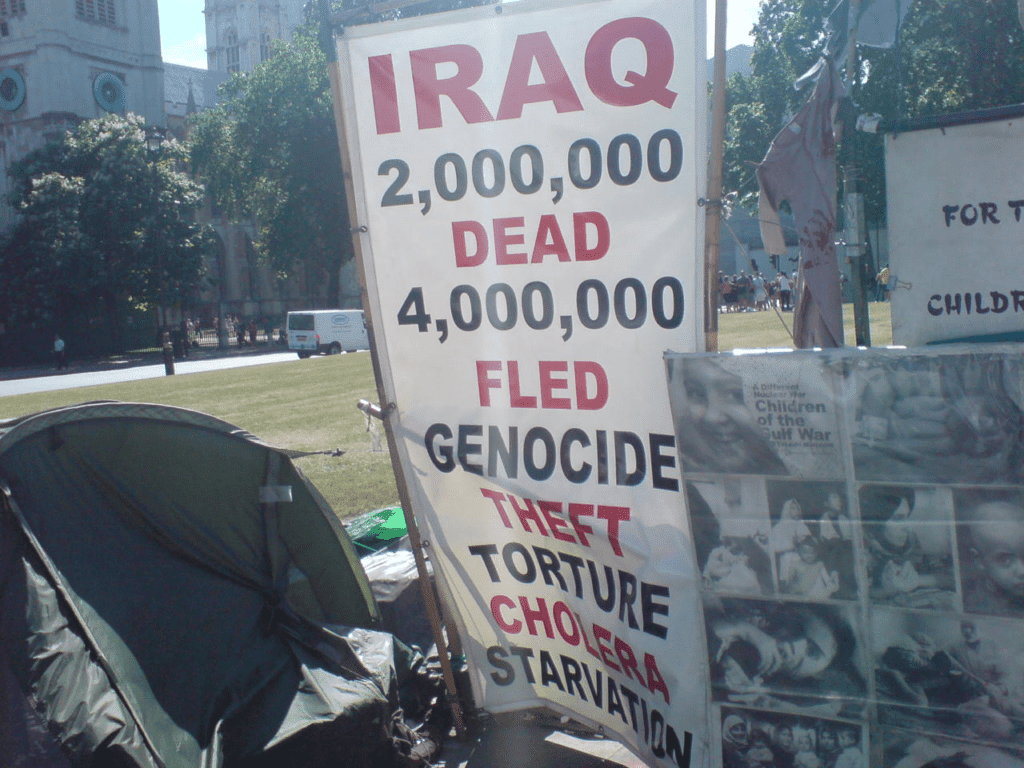
Medialens
Nikolai Lanine: Invasion – a comparison of Soviet and Western media performence (November 20, 2007)
“Nikolai Lanine served with the Soviet Army during its 1979-1989 occupation of Afghanistan, but now lives and works as a peace activist in Canada. Lanine has spent several years trawling through Soviet-era newspaper archives comparing the propaganda of that time with modern Western media performance.”
Middle East Report
Catastrophe and consequence. By the Editors (June 13, 2014)
“We offer here a selection of articles from our archives that shed light on the deeper roots of Iraq’s ongoing civil strife.”
From the Editors (Issue 266, Spring 2013)
“It may indeed be self-evident that the United States invaded Iraq in 2003, as the former Federal Reserve chairman [Alan Greenspan] says, because of oil. But what does this proposition mean? The answer is not so obvious.”
Joost Hiltermann: Iraq: What remains (Issue 266, Spring 2013)
“What America left behind, what remains today, can barely be considered a nation.”
Christopher Parker and Pete W. Moore: The war economy of Iraq (Issue 243, Summer 2007)
“War and profit have always gone hand in hand. In Iraq, as well, a ‘war economy’ is firmly rooted, yet it has gone largely unexamined in the stacks of books and articles dissecting Washington’s grandiose venture gone bad. Armed with ideological assumptions and economic quick fixes, US occupation officials pursued policies that, at a minimum, aggravated the severe social dislocation wrought by war, privatization and sanctions before 2003.”
Monthly Review
John Bellamy Foster: Imperial America and war (Vol. 55, Nr. 1, May 2003)
“.. slightly revised version of the introduction to a collection of essays by Harry Magdoff, Imperialism without Colonies (Monthly Review Press, 2003) … As Magdoff argues, there is an essential oneness to economic, political, and military domination under capitalism. Those seeking to oppose the manifestations of imperialism must recognize that it is impossible to challenge any one of these effectively without calling into question all the others; and hence the entire system.”
Mother Jones
Iraq 101. Compilled by Robert Dreyfuss and Dave Gilson (March/April 2007)
Contents: From Allawi to Zarqawi – Civil war : lost in transition – The cost: paying the price – Aftermath: long-term thinking – Sources + The Iraq effect: war has increased terrorism sevenfold worldwide. By Peter Bergen and Paul Cruickshank.
New Internationalist
Hadani Ditmars: Post-invasion Iraq – the facts (No.432, May 2010)
“Twelve years of sanctions and seven years of occupation have taken their toll as Iraqis struggle with wrecked infrastructure and continuing insecurity.”
New Left Review
Alan Cafruny and Timothy Lehmann: Over the Horizon? (No.73, January-February 2012)
“Nine years on, what is the balance sheet of the Occupation? An accounting of imperial assets – oil contracts, weapons deals, hobbled client state – still in Washington’s pocket after the drawdown.”
Susan Watkins: Vichy on the Tigris (No.28, July-August 2004)
“With the now unanimous support of the ‘international community’, can Washington hope to recoup its gamble in Iraq? Prospects for the resistance and the Occupation, as the UN-approved government is hoisted into place.”
Tariq Ali: Re-colonizing Iraq (No.21, May-June 2003)
“The American expedition to Baghdad, and world-wide reactions to the new imperium. From mass demonstrations against the war to the diplomatic hypocrisies colluding with it. The UN as framework of blockade and intervention yesterday, and mask of reconstruction tomorrow.”
New Politics
Iraq Symposium (No.39, Summer 2005, p.21-41). Sroll down.
“An exchange [9 articles] on the politics of the U.S. occupation, the Iraqi resistance, and the antiwar movement.”
Joanne Landy: Questions for the peace movement: The U.S. occupation of Iraq (No.36, Winter 2004, p.19-31)
“At the same time that the peace movement opposes war and the continued U.S. military presence in Iraq, it also needs to adress the question of how to respond to ruthless dictators like Saddam Hussein, to terrorism and to Islamic fundamentalism.”
Alan Johnson: Iraq and the Third Camp (No.35, Summer 2003, p.33-57)
“Nationalism per se will increasingly become the provenance of reactionary Islamist forces that will make their appeal to the Arab world on that basis, folding Iraqi nationalism into sectarian religious mould. The only counterbalance to this is an Iraqi working class in motion.”
Barry Finger: Their regime change and ours (No.34, Winter 2003, p.5-15)
“The critical questions for socialists, indeed for consistent democrats, are regime change by whom and for whom. A peace movement that stands for peace and only for peace – one that disassociates itself from the cause of freedom and satisfies itself with juggling the status quo – invariably sows the seeds of its own later isolation and disillusionment.”
Julius Jacobsson: On liberal and left responses to Bush’s war on democracy (No.33, Summer 2002, p.5-31)
“Unfortunately, much of the left has failed miserably; some, reeling and disoriented by the horror of 9/11, joined pro-war liberals in contributing their intellectual skills to justifying the war in Afghanistan. On the other hand, many resisted a war of imperial design but failed to meet their elementary moral and political obligations to resoundingly condemn the hijackers and their fundamentalist mentors and trainers, to prove to the nation that they, too, mourn the victims and are in solidarity with the bereaved. Below, I detail my grievance against a flawed section of the anti-war left.”
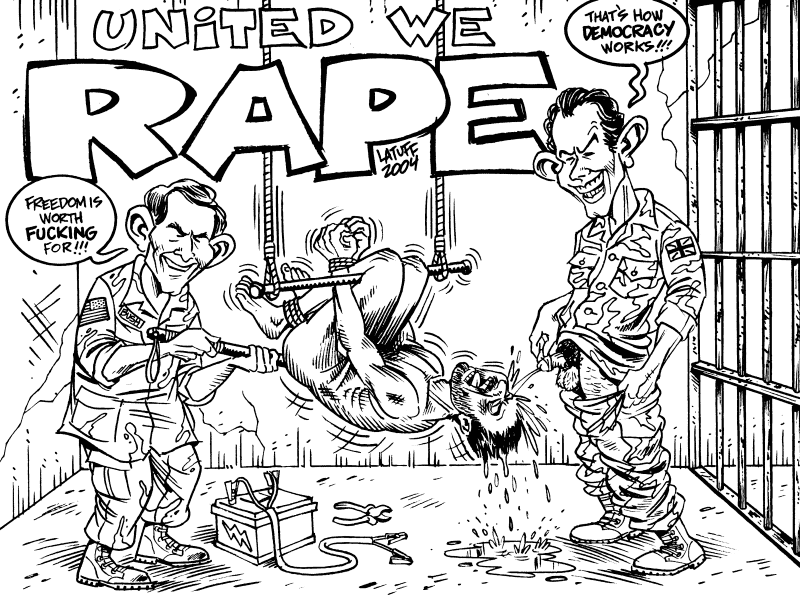
Oxfam
Rising to the humanitarian challenge in Iraq (pdf) (Briefing Paper, No. 105, July 30, 2007, 40 p.)
“While horrific violence dominates the lives of millions of ordinary people inside Iraq, another kind of crisis, also due to the impact of war, has been slowly unfolding. Up to eight million people are now in need of emergency assistance. This figure includes: four million people who are ‘food-insecure and in dire need of different types of humanitarian assistance’, more than two million displaced people inside Iraq, over two million Iraqis in neighbouring countries, mainly Syria and Jordan, making this the fastest-growing refugee crisis in the world.”
The Progressive
David Bacon: Saddam’s labor laws live on (December 2003)
“Most Iraqi workers hoped the fall of Saddam Hussein would liberate them, enabling them to recover their lost rights.” The article in Danish: Saddams arbejdslove lever i bedste velgående (Solidaritet, nr. 1, marts 2004, side 12-16; online på Internet Archive)
Thomas J. Nagy: The secret behind the sanctions: how the U.S. intentionally destroyed Iraq’s water supply (September 2001; online at Global Policy Forum)
“For more than ten years, the United States has deliberately pursued a policy of destroying the water treatment system of Iraq, knowing full well the cost in Iraqi lives. The United Nations has estimated that more than 500,000 Iraqi children have died as a result of sanctions, and that 5,000 Iraqi children continue to die every month for this reason.”
Socialist Register
Vivek Chibber: American militarism and the US political establisment: The real lessons of the invasion of Iraq (2009)
“The American invasion of Iraq has been a catastrophe of epic proportions for the Iraqi population … But it has also been a significant disaster for Bush and American global power more generally.”
Socialist Review
Sami Ramadani: Iraq’s occupation goes on, but with new cloaks (No. 351, October 2010)
“Some in the media apologised for the uncritical way they peddled official policy and lies on Iraq, designed to justify the invasion and occupation of the country. In marginalising the news about the true state of affairs in Iraq today their role is no less damaging.”
Socialist Worker [UK]
Sami Ramadani: Who represents Iraqi workers? (Issue 1925, 30 October 2004) + Full text of open letter about IFTU (Issue 1925, 22 October 2004)
“The Iraqi Federation of Trade Unions (IFTU) leadership appears to have succeeded in convincing some union leaders in Britain that it is a staunch opponent of the occupation. Alas, this self projected image is false.”
See also response below by Workers Liberty.
SocialistWorker.org
How should we understand Iraq’s crisis? (June 16, 2014)
“Michael Schwartz responds to the mainstream media analysis of the conflict in Iraq that it has largely ignored until now.”
Did the U.S. leave behind a civil war in Iraq? (January 17, 2012)
“Ashley Smith looks at the nightmarish conditions that the U.S. has left behind after the withdrawal of military forces from Iraq late last year.”
Why the U.S. failed in Iraq (November 21, 2011)
“Michael Schwartz is the author of War Without End: The Iraq War in Context and a regular writer at websites such as TomDispatch.com. He talked with Ashley Smith about the Obama administration’s announcement that all U.S. troops would be withdrawn from Iraq by December 31, 2011, and about what this means for U.S. policy in the Middle East.”
The Obama doctrine in Iraq (July 22, 2009)
“The mainstream media accepted without question the Pentagon’s claim that it was beginning the withdrawal of U.S. troops from Iraq by pulling out of the cities, but the reality is far different. Michael Schwartz talked to Ashley Smith about the latest developments in Iraq and they mean for the future.”
Featured articles: Washington’s war on Iraq
“SW Online’s ongoing coverage and analysis.”
Swans Commentary
Special Issue: Resistance: In the eye of the American hegemon. Edited by Gilles d’Aymery and Jan Baughman (February 2, 2004)
Contents: Introduction read – Imperialism through the ages – Marketing the war – The human price of ‘Democracy’ – Conquer, divide, and profit – American fallout – The future: Rrsistance and cooperation.
Target Iraq: What the news media didn’t tell you
By Norman Solomon and Reese Erlich. Introduction by Howard Zinn, afterword by Sean Penn (New York, Context Books, 2003, 188 p.; online at Coldtype.net)
“This book exposes the myths and lies behind the invasion.”
Tempest
The legacy of occupation and the fight for a democratic Iraq (January 12, 2023)
“brian bean interviews Workers Against Sectarianism on the struggle against sectarian politics in Iraq.”
Workers Liberty
Who represents Iraqi workers? A response to Sami Ramadani (9 March, 2005)
“A response to a widely-circulated letter by Iraqi exile leftist Sami Ramadani about the Iraqi Federation of Trade Unions, and the text of the original letter.”
See also Sections: The war of 2003 and its aftermath.
World Socialist Web Site
Patrick Martin: Twenty years since the US invasion of Iraq (21 March 2023)
“The conquest and occupation of Iraq is one of the greatest crimes of the 21st century.”
Joseph Kishore: The reality of the Iraq War (21 December 2011)
“The departure of the last ‘combat’ troops from Iraq by no means marks an end to the US intervention in the country. It does, however, offer an opportunity to take the measure of one of the greatest crimes of the modern period.”
Bill Van Auken: The US war and occupation of Iraq – the murder of a society, Part 1-3 (19 May + 21 May + 22 May 2007)
“Its purpose is to examine a series of recent reports establishing the immense scale of death, destruction and oppression that have been wrought by the US occupation of Iraq, now in its fifth year. Taken together, these reports confirm that US operations in Iraq have amounted to sociocide – the deliberate and systematic murder of an entire society.”
Joseph Kay and Alex Lefebvre: The diplomacy of imperialism: Iraq and US foreign policy:
Part one: Monarchical Iraq and the growth of social antagonisms (12 March 2004)
Part two: The Iraqi nationalist movements, the permanent revolution, and the Cold War (13 March 2004)
Part three: The Iraqi Baath Party, from its origins to political power (16 March 2004)
Part four: Iraq in the 1970s and the beginning of the Iran-Iraq War (17 March 2004)
Part five: Donald Rumsfeld and the Washington-Saddam Hussein connection (19 March 2004)
Part six: Reagan administration deepens ties with Hussein (24 march 2004)
Part seven: US financial assistance for Hussein in the 1980s (26 March 2004)
Part eight: The end of the Iran-Iraq war (29 March 2004)
Part nine: American policy after the Iran-Iraq war (2 April 2004).
Jean Shaoul: Imperialism and Iraq: lessons from the past, 1-3 (29-31 May 2003)
“It is instructive to examine this earlier period and the role the imperialist powers played in shaping the political, economic and social conditions in Iraq.”
World War 4 Report
Bill Weinberg: Iraq’s civil resistance: The secular left opposition stands up (Issue 141, January 2008)
“There is still little awareness in the US about Iraq’s civil resistance. The dichotomized vision of occupation-vs-Islamist insurgents infects the mainstream as well as the anti-war forces.”
